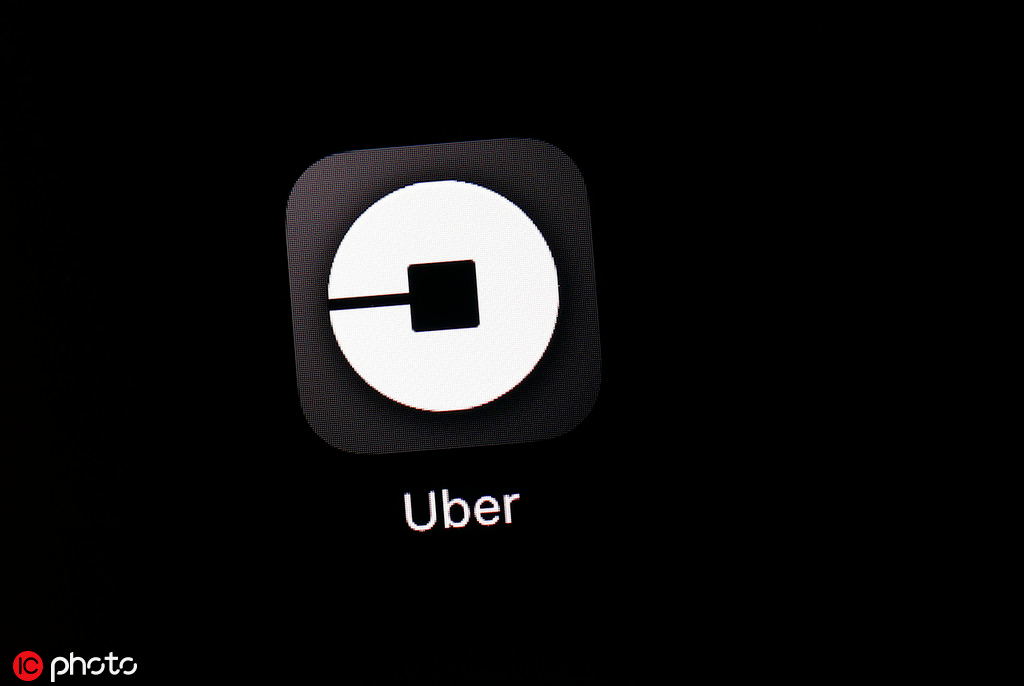Uber set to launch IPO amid losses
By SCOTT REEVES in New York | China Daily Global | Updated: 2019-05-09 23:18

Uber's ride-hailing business has been a consistent money-loser despite its worldwide operations. On Friday, investors will have the chance to place their bets on the future of Uber as it launches an initial public offering.
There are low barriers to entering the ride-hailing business, and competition is increasing, especially in the US, where Uber goes head-to-head with Lyft. Also, revenue growth is slowing ahead of Uber's IPO on the New York Stock Exchange.
Uber's use of independent contractors driving their own vehicles keeps overhead low, but the company must spend heavily to build market share. Uber's revenue has not caught up with expenditures, and the company has yet to make a profit.
"Making money will be elusive for some time, so investors must be aware of what they're buying," David Menlow, president of IPO Financial Network, told China Daily.
Nevertheless, Menlow said Uber will attract strong interest from mutual funds and other institutional investors.
"The individual investor is probably going to get just a token amount of stock. Uber is now in the unicorn phase — it's exciting, the valuation will be rich in some people's minds, and there's a lot of potential for volatility."
Uber Technologies plans to offer 180 million shares at $44 to $50 each. The company could raise about $8.4 billion and plans to use net proceeds as working capital. Uber's IPO will be the largest since Alibaba Group Holdings launched in 2014.
In March, Lyft's IPO established investor interest in the ride-hailing sector when it priced 30.7 million shares at $72 each after price talk of $62 to $68 a share.
Lyft's shares recently closed on Nasdaq at $59.34 each, a decline of 17.58 percent from the offer price and a drop of 31.48 percent from the early trading high of $88.60.
Lyft's first-quarter revenue totaled $776 million, a 95 percent increase from the same period a year ago, but losses were $1.14 billion, including IPO-related expenses.
The optimistic view is that Uber may be like Amazon.com in its early years. Stock-pickers once joked that Amazon sold dollars for 99 cents, driving revenue skyward but the bottom line — profit — would never catch up.
But Amazon revolutionized retailing, as evidenced by the continued growth of online sales and a long list of bankrupt brick-and-mortar chains, including Toys 'R' Us, Sports Authority and Borders Books.
Amazon is now a huge moneymaker. In 2018, profit grew to $10.1 billion, three times earnings in 2017, on revenue of $232.9 billion, up 31 percent over last year.
This year, Forbes magazine ranked Jeff Bezos, Amazon's founder, the richest man in the world. In 2013, Bezos purchased The Washington Post for $250 million, petty cash for a man whose wealth is estimated at $131 billion.
If Uber is the next Amazon, it will play catch-up for years. After strong revenue growth — from $495 million in 2014 to $11.27 billion in 2018 — Uber reported revenue of $2.31 billion in the fourth quarter but showed little growth in the prior six months. That is a red flag for investors, because an IPO is a bet on future growth.
Uber's deficit since its founding reached $7.9 billion. In its SEC registration filing, Uber warned, "We anticipate that we will continue to incur losses in the near term as a result of expected substantial increases in our operating expenses."
Uber is also active in food home delivery and trucking. There are low barriers to entry in both sectors, increasing competition and forcing Uber to spend heavily to build its brand. In meal and food delivery, Uber competes with GrubHub, DoorDash, Deliveroo, Swiggy, Delivery Hero, Just Eat, Takeaway.com and Amazon.
Uber's freight business competes with North American and global companies, including DHL, Next Trucking and Convoy.
Uber's drivers may unionize, driving up operating costs and putting profits further out of reach. Court challenges and new regulations could force Uber to recognize its drivers as company employees rather than independent contractors.
On Wednesday, Uber and Lyft drivers in 10 US cities went on strike and urged riders to boycott the companies for 24 hours. Drivers seek a 10 percent cap on commissions taken by the companies.
"I believe the players are going to buy Uber and short Lyft," Menlow said. "I think Uber's IPO will do well."























